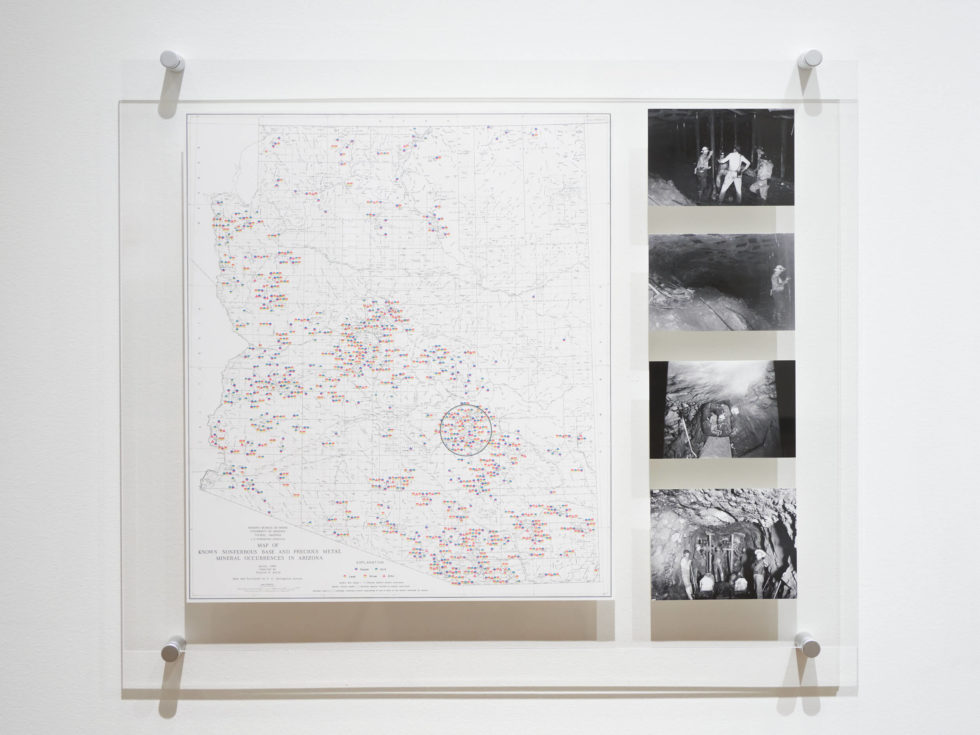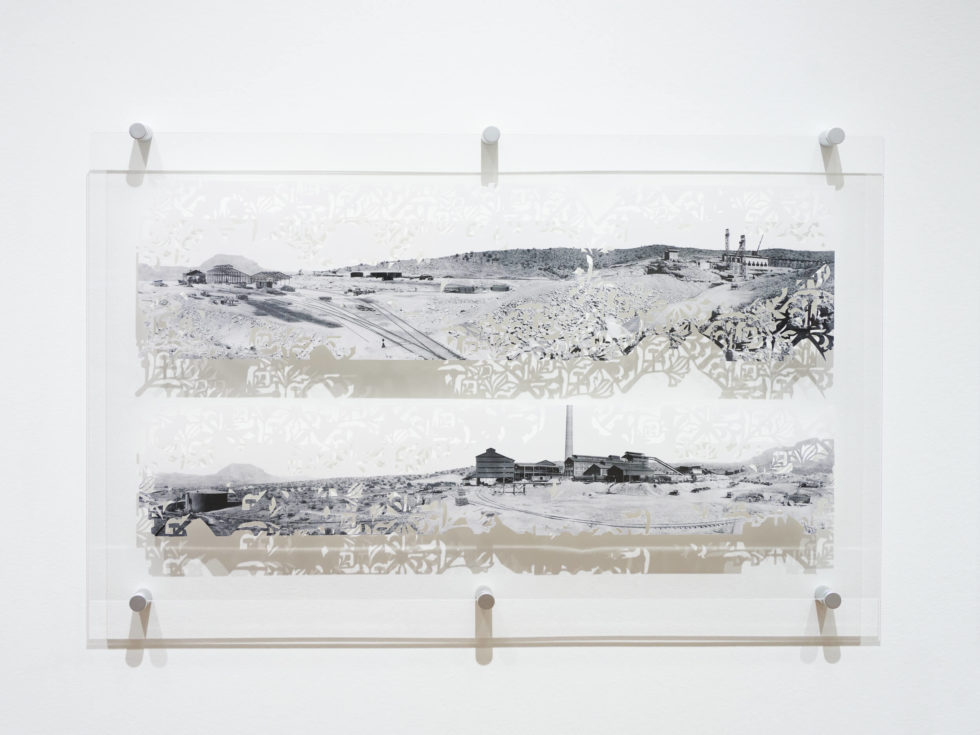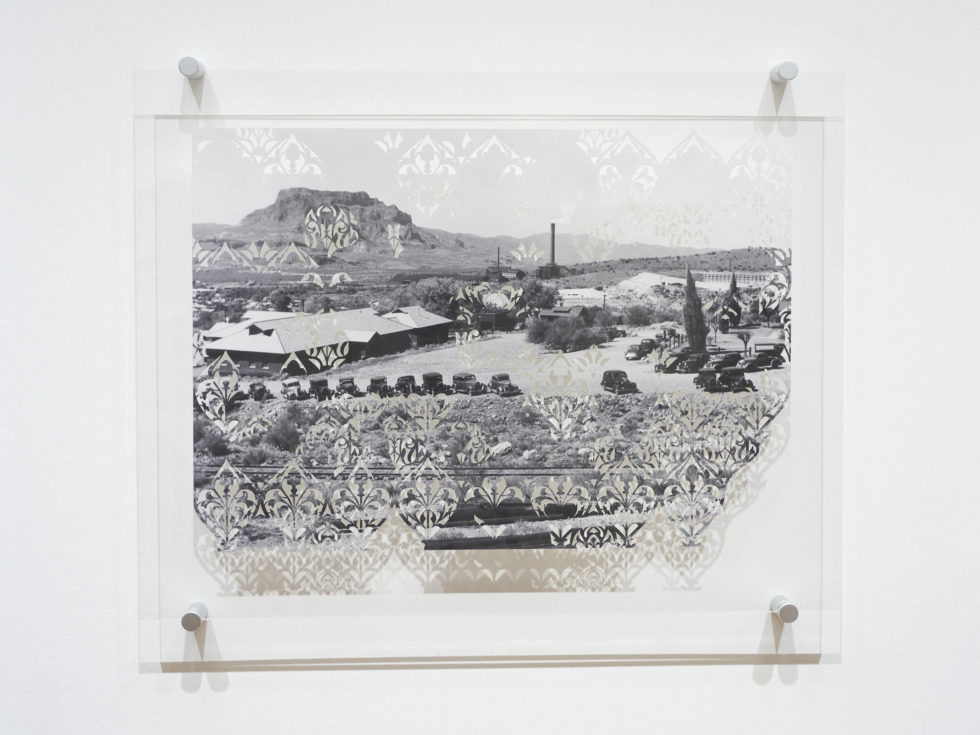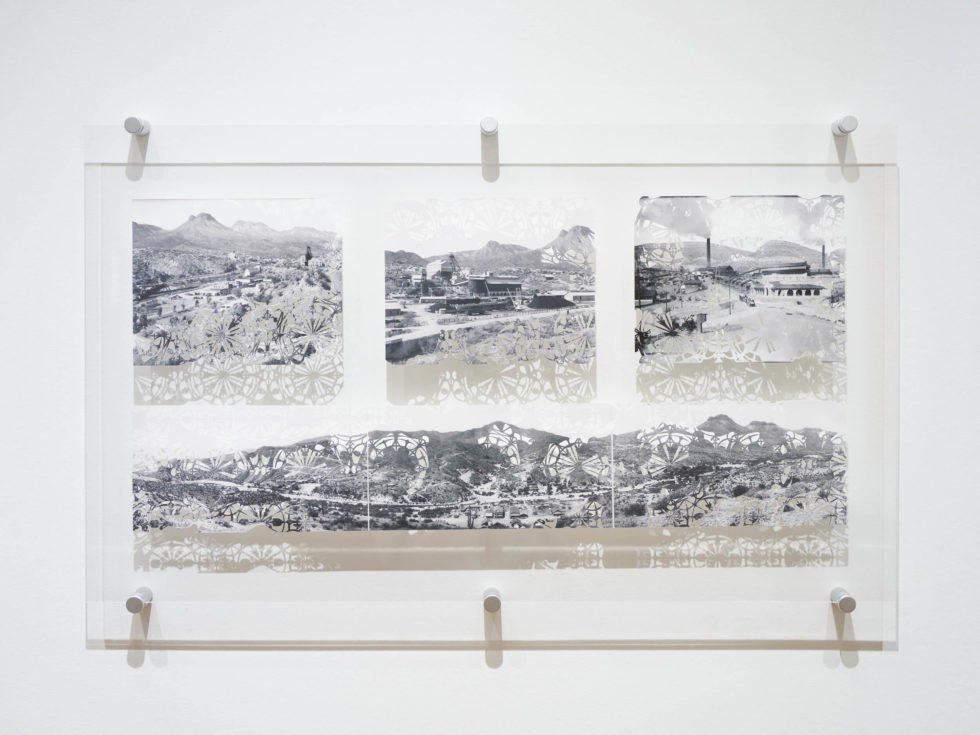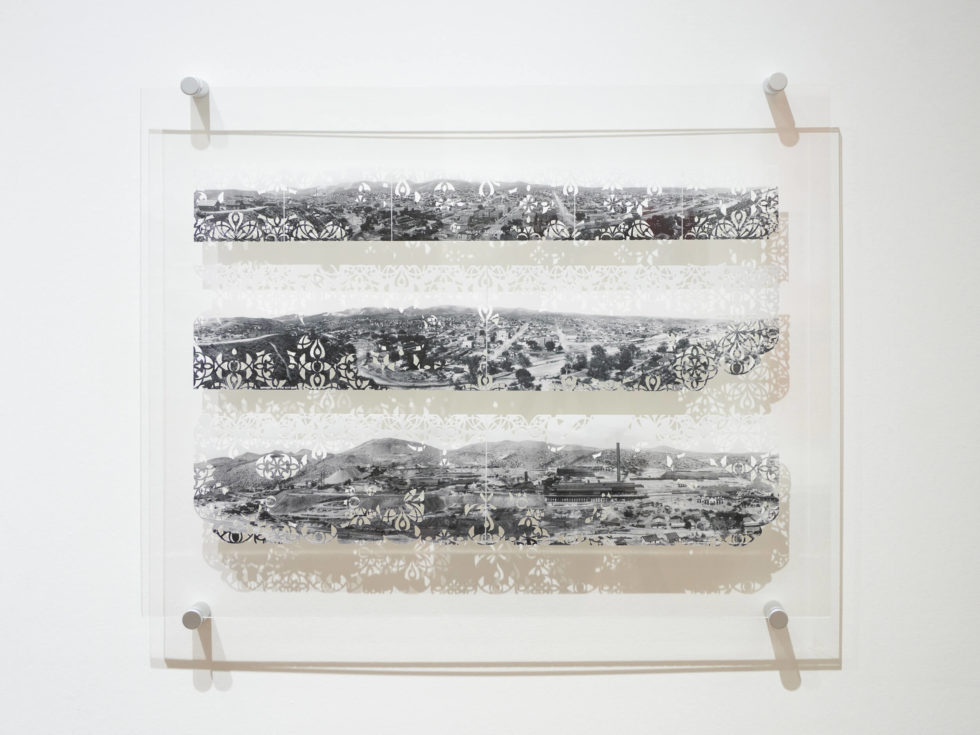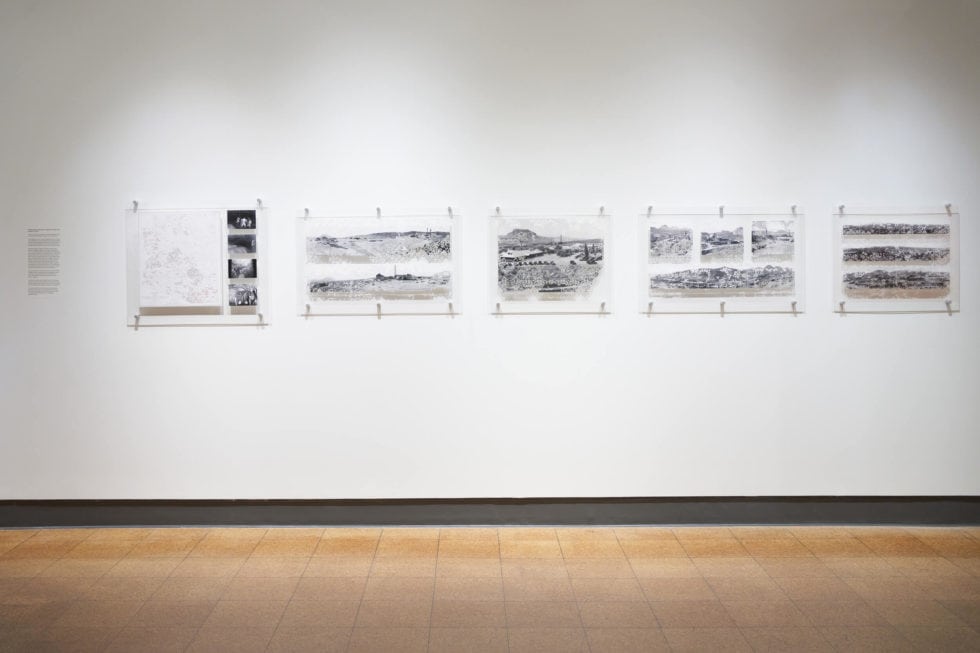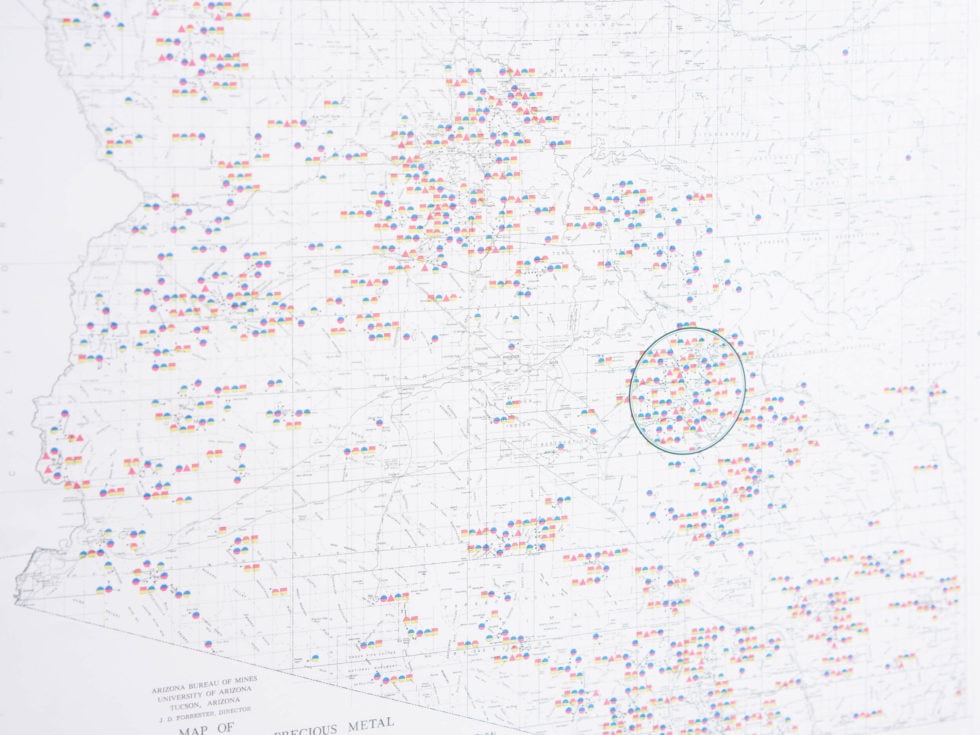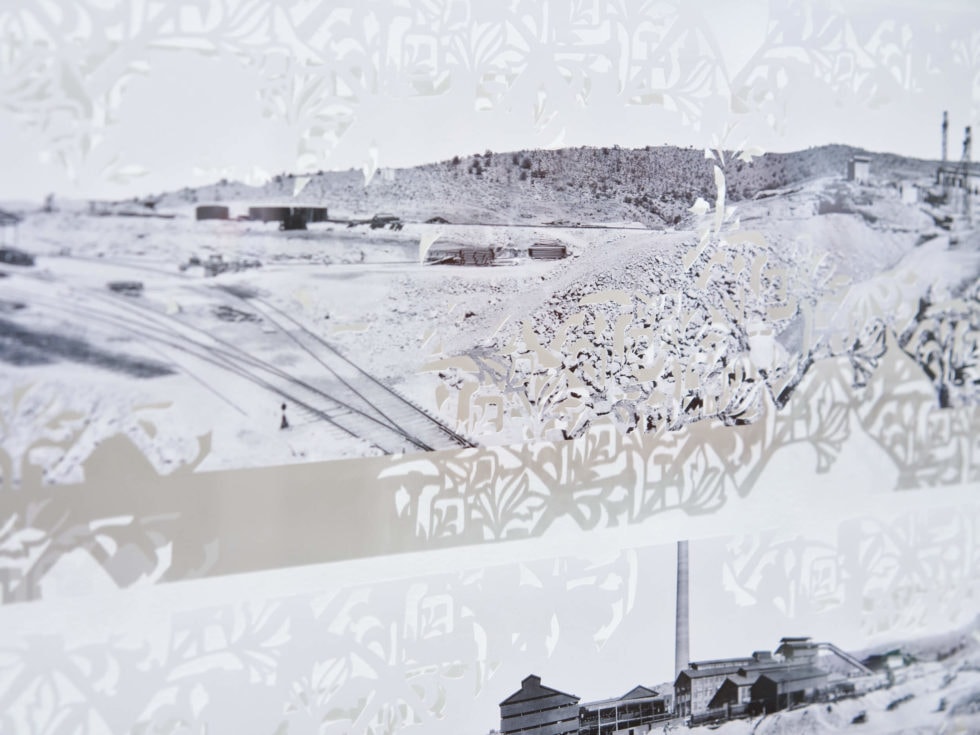Venessa Ball
Crosscut: Mining and domesticity, creating a life in spite of and because of the mine.
Crosscut: a mining term to describe a horizontal opening driven from a vertical shaft at right angles to access the vein of the orebody.
As a mining state, Arizona is among the leading producers of copper in the United States. The most successful mines are large endeavors, with multiple shafts dropping deep into the earth, hauling rocks rich in minerals up, then processing the rock on-site to send the purest ore to another region to be refined further and turned into goods for sale.
These large operations required an extensive workforce, from laborers, to geologists, engineers, and company representatives. The mine would often provide housing, schoolhouses and gathering spaces in the surrounding area, creating an entire town owned by the company itself. Like so many other small communities in America these “boomtown” economies were built on what they believed to be stable and consistent growth. Should the ore deposit run out or the company no longer have the funds to dig any deeper, what then happens to the community? What should also happen if the very commodity the mine needs to keep going just happens to be right under the ground on which they built the town? If you ask the former townspeople of Ray-Sonora, AZ… there is no more town. In 1966, their town was demolished to continue the mine operations.
Thirty years after Ray-Sonora was removed from the map, in 1996, the Magma Copper mine where my father and grandfather worked for decades—and that had provided so much stability for my family—officially closed, because it was deemed too costly to continue operations.
The only way my father could continue his career in mining was to relocate his family to another mining town. This wouldn’t be the last time this happened in my childhood. Chasing the ore was my father’s way of ensuring our family always had a stable and comfortable life.
The delicate patterns cut from family and historical photographs highlight the tension often felt by my family and so many mining families as they attempted to build a life in the shadow of a brutal and unstable industry, dependent on an unsympathetic capitalist economy.


